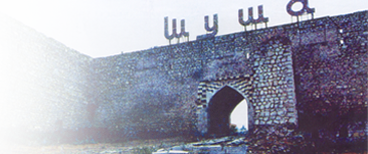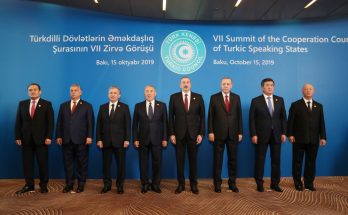
There are double standards in the OSCE work in the South Caucasus region, Azerbaijani Foreign Minister Elmar Mammadyarov said in an interview with Russian Independent Newspaper today. “There are double standards in assessing the internal situation in the country,” Mammadyarov said, while answering the question about Baku’s plans to reduce the OSCE representative office’s status in the territory of Azerbaijan. For example, an attempt of one presidential candidate to shoot another or other candidate’s hunger strike are not indicated in the official records of the organization, but the elections are characterized as transparent and democratic. But the processes are thoroughly examined in other country.”
Regarding the Nagorno-Karabakh conflict, the minister said that “diplomacy is not exhausted”.
“We must triple our efforts, rather than double, to break this vicious circle, in which we are,” Mammadyarov said. Let’s ask the question, hold a public opinion poll in Armenia. What did they win? Who won?”
“The essence of the Madrid principles, which are being negotiated, is that Baku gets seven regions around Nagorno-Karabakh with a fixed date,” he said. “Besides security guarantees, the Armenian party obtains the temporary status of Karabakh. The economic development will be also observed. Refugees will return home. The communications will be opened. Normal full life support will be resumed. At present, it does not exist at almost 20 percent of Azerbaijani territory.”
According to the minister, the absurd is that no country in the world, even Armenia, recognized the independence of occupied Nagorno-Karabakh.
“It is absurd,” he said. “All the people of Azerbaijani nationality were expelled from Karabakh and stated that they used the principle of the nation’s right to self-determination. Are not the Azerbaijanis a nation? Nobody denies the principle of the nation’s right to self-determination. It is fixed in the UN Charter and the Helsinki Act, as well as the principle of territorial integrity. Inaction deteriorates the situation.”
According to the minister, the tension on the contact line is growing and the crisis will occur because the gap between the two countries increases.
“The economy plays a major role in terms of resolving various conflicts,” he added. “The military actions are undesirable.”
The conflict between the two South Caucasus countries began in 1988 when Armenia made territorial claims against Azerbaijan. Armenian armed forces have occupied 20 per cent of Azerbaijan since 1992, including the Nagorno-Karabakh region and seven surrounding districts.
Azerbaijan and Armenia signed a ceasefire agreement in 1994. The co-chairs of the OSCE Minsk Group, Russia, France and the U.S. are currently holding peace negotiations.
Armenia has not yet implemented the U.N. Security Council’s four resolutions on the liberation of the Nagorno-Karabakh and the surrounding regions.
/Trend/




